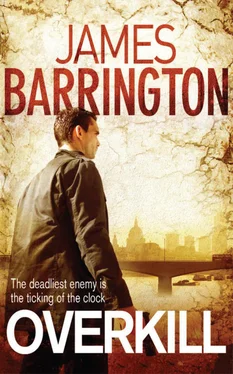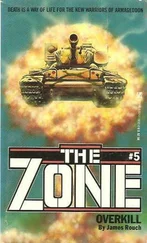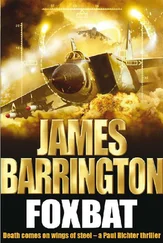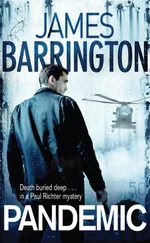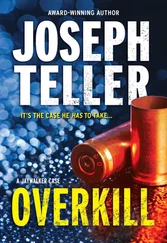‘What is it?’ Richter asked.
‘They’ve pulled off the autoroute,’ Lacomte said.
Oval Office, White House, 1600 Pennsylvania Avenue, Washington, D.C.
Ambassador Karasin had known the American President for three years, and believed he knew him well. He was also, from necessity, able to interpret body language and to use his intuition. And what his intuition told him, as he sat in one of the Oval Office’s comfortable leather chairs, was that, despite the President’s placid exterior, he was consumed with fury.
‘Mr Ambassador,’ the President said smoothly, ‘are you absolutely certain that Moscow knows nothing of this matter?’
The Russian shook his head. ‘Nothing, Mr President. Nothing at all.’ Walter Hicks, sitting in a chair towards the back of the room, nodded to himself. He thought Karasin was probably telling the truth. ‘I spoke with the President himself,’ Karasin continued, ‘and he gave me his personal assurance, his personal assurance,’ Karasin repeated, emphasizing the words, ‘that he had authorized no action of the sort you suggested.’
The American looked at him for a moment before speaking. ‘Well, Mr Ambassador, that’s certainly good to know,’ he replied. Karasin relaxed slightly in his seat. ‘Unfortunately,’ the President continued, just as smoothly, ‘that does present us with something of a problem.’ Karasin looked at him, but said nothing. ‘When we last discussed this,’ the American said, ‘I told you that we had information that an assault was being planned by Russia upon America.’
‘Yes, Mr President,’ Karasin said, nodding. ‘I remember our conversation. I hope you also remember that I said at the time I had no knowledge of this alleged assault. I repeat that now, with the further assurance from our President.’
The American spoke softly. ‘Quite so, Mr Ambassador. The problem is that we now have it on unimpeachable authority that this assault has not just been planned.’ He paused. ‘We now know – not believe or think, but know – that this assault has already been implemented.’
Karasin clenched his fists, his face growing white. ‘I assure you, Mr President—’
‘Assurances, Stanislav,’ the American said, using Karasin’s first name quite deliberately, ‘are no longer sufficient. I have no choice but to advise you that, unless we receive an unequivocal guarantee from your President that the assault has been halted, no later than fifteen hundred hours Eastern Standard Time – that’s twenty three hundred hours Moscow time – today, then one hour later we will launch our strategic bomber force without any further notice or reference to you.’ Karasin shook his head. ‘You should also be aware, Mr Ambassador, that the United States will go to DEFCON ONE in—’ he looked at his watch ‘—a little over eight hours from now. You are aware, I hope, of what that implies.’
‘Yes, Mr President. We know what that means. I repeat, our President has assured me he knows nothing of this assault. How, then, will he be able to convince you that it has been stopped? And how can he stop it?’
The American stood up. ‘Those, Mr Ambassador, are his problems, not mine. I have told you what we will do. Our position is non-negotiable. Good day to you.’
Autoroute A26, vicinity of Couvron-et-Aumencourt, France
‘What?’ Richter demanded. ‘Where? You mean they’ve turned off it?’
‘No,’ Lacomte said. ‘They’ve pulled into the service area just north of junction fourteen.’
Richter relaxed. ‘Probably just a fuel or food stop,’ he said.
‘I hope so,’ Lacomte replied, ‘but what concerns me is the traffic. I’ve just ordered the autoroute closed north of that junction.’
Richter thought for a moment. ‘We have to preserve the illusion of normality at all costs,’ he said. ‘I think you’ll have to open it up again until they get going.’
Lacomte nodded and jumped back into the van. Richter told Dekker his men could relax for a few more minutes, and climbed into Lacomte’s van to wait for news. The messages they were getting from the driver who had followed the convoy into the service area didn’t seem to indicate anything suspicious. The lorry had been refuelled, as had the cars, and the occupants were visiting the toilets and the shop, always leaving one person in each vehicle. After fifteen minutes, they started their engines again, and eased out into the traffic stream.
Lacomte waited until the pursuit car driver radioed that the convoy was established westbound, and then ordered the autoroute closed once again. ‘Now we wait,’ he said.
Twelve minutes later the radio speaker crackled and, behind the French, Richter could hear the sound of a big diesel engine. ‘The truck’s just passed the Forêt de Samoussy rest area,’ Lacomte said. ‘Our first truck is pulling out to follow.’ A minute later the second truck moved out to follow the limousine, then running about half a mile behind the second Mercedes saloon.
Richter opened the van door and called out to Colin Dekker: ‘Go.’ The SAS officer gave a thumbs-up sign and climbed into the Transit, started the engine and drove off slowly along the hard shoulder, hazard lights flashing. Erulin got into his Renault Trafic and followed.
‘Time we organized your breakdown,’ Richter said to Lacomte. They went round to the cab of the van and opened the bonnet. Then Richter turned on the hazard lights, took a warning triangle from the rear compartment and placed it about fifty metres behind the van.
The traffic flow had reduced markedly as the closures Lacomte had put in place at junctions 12, 13 and 14 took effect, and only an occasional vehicle passed in either direction. Richter looked up the autoroute. About three-quarters of a mile ahead, he could see one of the GIGN men placing cones in a narrow triangle to protect the Transit. To Richter, it looked convincingly ordinary, but his opinion wasn’t the one that mattered. He climbed back into the van, closed the rear doors, put on a headset and thumbed the button. ‘Colin?’
‘Here. SAS check-in.’ Three voices acknowledged in sequence.
‘Lieutenant Erulin?’
‘Here.’
The radio operator spoke to Lacomte, and he tapped Richter on the shoulder. ‘Chambry,’ he said.
‘All positions,’ Richter said into the microphone. ‘This is Control. The target vehicles have passed Chambry. We estimate they’ll be with us in four minutes. Stand by.’ Erulin repeated what Richter said, in French, to the GIGN troopers. The rear doors of the Renault had small windows, and Richter stood up and looked back down the autoroute. The road was empty, no traffic moving in either direction. Lacomte told one of the radio operators to get out and fiddle with the engine of the van – an added touch to lend veracity to the scene.
Then Richter saw them. The lead Mercedes was just passing under the flyover that carried the D967 between Laon and Crécy-sur-Serre, and as he watched the second saloon moved into view from behind the bulk of the articulated lorry. Richter pressed the transmit switch again. ‘All positions, Control. Two minutes.’
Richter turned his attention back to the autoroute. The road was almost perfectly straight, and he couldn’t see either of the French trucks, but he could see both blue saloons. ‘Both Mercedes are ahead of the truck and accelerating.’ Richter looked back through the window. Behind the Russian truck he could just see the cab of another articulated lorry coming into view, obviously accelerating to overtake. It looked to Richter as if he had left it too late.
‘Something’s wrong,’ Bykov said.
Modin had been dozing quietly. ‘What?’ he asked.
‘Something’s wrong,’ Bykov repeated. ‘There’s too little traffic. I have a feeling—’
Читать дальше
